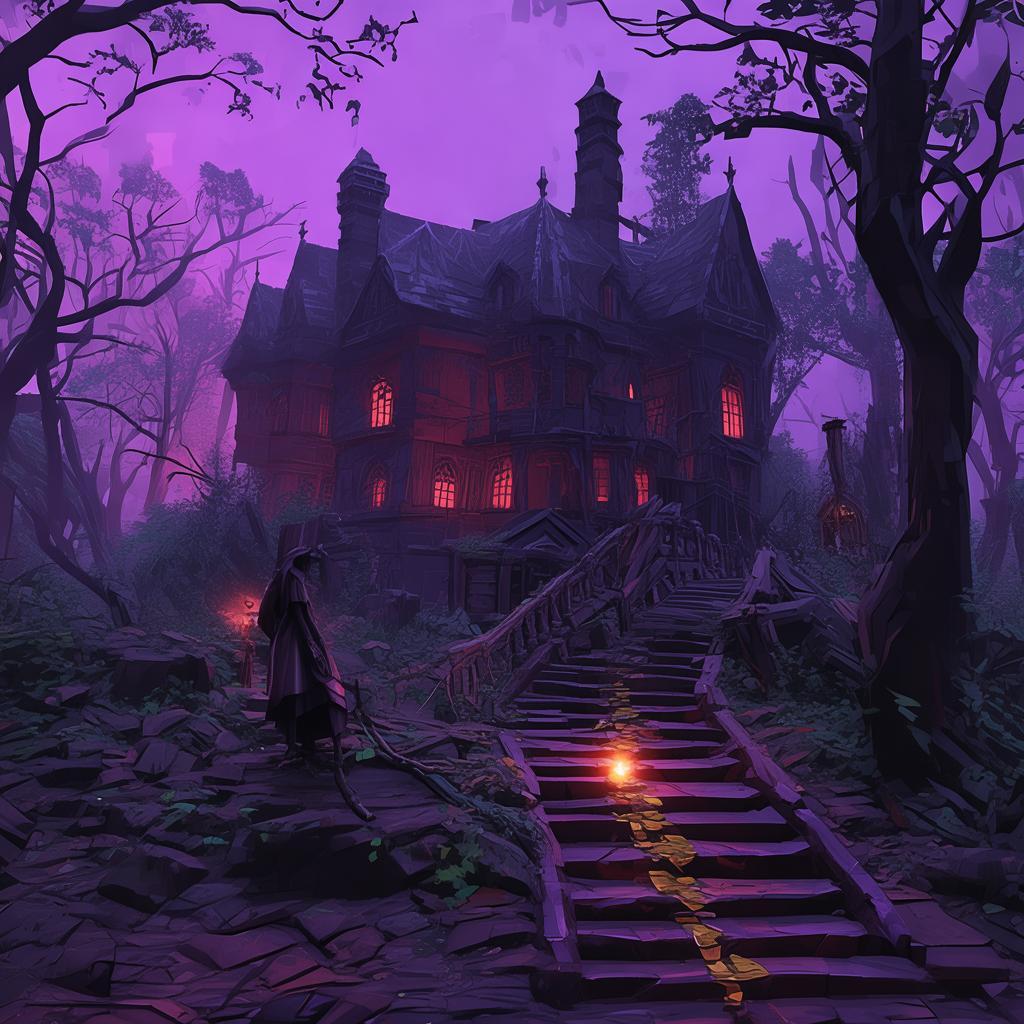The Dying Sun's Requiem: A Descent into the Abyss
The air was thick with the dust of the remnants of humanity, a world where the sun had grown terminally dim, casting an eternal twilight over the earth. The once vibrant cities were now silent, their structures reduced to the skeletons of their former selves. The young singer, Elara, wandered through the ruins, her heart heavy with the loss of her family.
Elara had found solace in music, the one thing that seemed to hold some semblance of normalcy in this world. She stumbled upon an old, abandoned theater, its once majestic facade now crumbling. Inside, she discovered a dusty, leather-bound book, its cover emblazoned with the title "The Dying Sun's Requiem." The words seemed to call to her, and she opened the book, her eyes drawn to the illustration of a sun in its final stages of life.
As she read the lyrics of the opera, a haunting melody began to play in her mind. The lyrics spoke of a descent into the abyss, a journey through the darkest parts of the soul. Elara felt an inexplicable pull toward the music, as if it were a siren call, drawing her into its depths.
One evening, as the world outside was shrouded in an impenetrable darkness, Elara began to sing the opera's first aria. The music resonated with a power that she had never known before, and as she sang, she felt a strange connection to the characters portrayed in the opera.
The opera's narrative followed the story of a protagonist named Lucius, a man who had been cursed to descend into the abyss, where he would face his innermost fears. Elara found herself drawn to Lucius's plight, and as she sang, she felt the curse begin to take hold.
The first night, Elara experienced vivid dreams of a desolate landscape, with twisted trees and dark, swirling mists. She awoke in a cold sweat, her breath coming in ragged gasps. She realized that the descent into the abyss had begun, and that she was the next in line to face the horrors that lay within.
Each night, as she sang, new terrors would arise. She would see the faces of her loved ones, twisted and monstrous, as they beckoned her to follow them into the darkness. She would hear the voices of the dead, whispering their final words to her, their spirits trapped in the realm of the living.
Elara's sanity began to fray as she faced these horrors. She would wake in the morning, her mind a jumble of fear and confusion. She knew that she had to find a way to break the curse, or she would become one with the abyss herself.
One day, as she wandered through the ruins, she stumbled upon an old, abandoned library. Inside, she found a collection of books on the occult and the supernatural. She spent days reading, searching for any knowledge that might help her break the curse.
Finally, she discovered a ritual that seemed to offer hope. It required the sacrifice of a living soul, one that was deeply entwined with the opera's narrative. Elara knew that she had to make a choice: she could break the curse and save herself, or she could remain cursed and continue to face the terrors of the abyss.

As the final night approached, Elara gathered the necessary ingredients for the ritual. She knew that she had to make a decision, and she knew that the choice she made would change her life forever.
That night, as she performed the ritual, she felt the darkness of the abyss closing in around her. She sang the opera's final aria, her voice rising above the cacophony of the voices she had heard throughout her ordeal.
In a moment of clarity, Elara realized that the abyss was not a place of fear, but a reflection of the human soul. She saw that the terrors she had faced were her own fears, and that she had the power to overcome them.
As she sang, she felt the curse lift, and with it, the terrors of the abyss. She awoke the next morning, her mind clear and her heart at peace. She had faced her deepest fears, and had emerged victorious.
Elara continued to wander through the ruins, her journey through the abyss behind her. She had learned that the true horror of the world was not the darkness that surrounded her, but the darkness that lay within.
And so, she sang, a testament to the power of the human spirit to overcome even the darkest of times.
✨ Original Statement ✨
All articles published on this website (including but not limited to text, images, videos, and other content) are original or authorized for reposting and are protected by relevant laws. Without the explicit written permission of this website, no individual or organization may copy, modify, repost, or use the content for commercial purposes.
If you need to quote or cooperate, please contact this site for authorization. We reserve the right to pursue legal responsibility for any unauthorized use.
Hereby declared.









